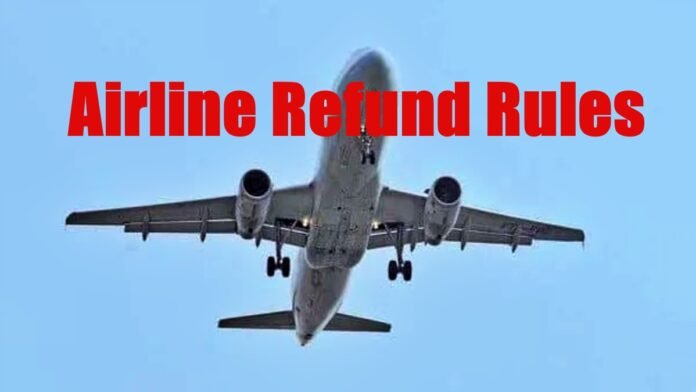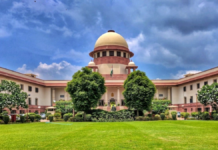
Key Points:
- 48-hour free cancellation/amendment window after booking (with fare difference exceptions)
- All refunds must be processed within 21 working days, ending prolonged delays
- Airlines must refund taxes and fees even for late cancellations and no-shows
- No charges for name corrections reported within 24 hours of booking
- Airlines responsible for refunds on agent-booked tickets; credit shells require passenger consent
- Excludes domestic bookings made <5 days before departure and international <15 days before
- DGCA seeking public feedback until November 30 before finalizing the Civil Aviation Requirement (CAR)
- Rules will apply to all airlines, including international carriers operating in India
New Delhi: The Directorate General of Civil Aviation’s proposed Civil Aviation Requirement (CAR) amendments represent a fundamental recalibration of passenger rights and airline accountability in India’s domestic and international aviation sector. For years, Indian travelers have endured a frustrating ecosystem characterized by opaque cancellation policies, indefinite refund delays spanning months, mysterious fee deductions, and mandatory travel credits that airlines deliberately complicated to recover revenue. The DGCA’s comprehensive reform package signals a decisive regulatory rejection of these practices and commits to establishing transparent, passenger-centric standards that align with international best practices.
The 48-Hour “Look-In” Period: Revolutionary Flexibility
The centerpiece of the proposed reforms is a revolutionary 48-hour “look-in” or “free cancellation window” that transforms the booking experience. After a passenger purchases a flight ticket, they have two full calendar days during which they can cancel the booking entirely or modify it to a different flight without incurring any penalty charges. The only financial obligation passengers face is payment for fare differences if they transfer to a flight with higher pricing.
This provision applies universally except in two critical scenarios: domestic flights booked fewer than five days before departure, and international flights booked fewer than 15 days before departure. This exception acknowledges airlines’ revenue management challenges when last-minute bookings occur near departure dates.
The policy’s elegance lies in balancing passenger flexibility with airline commercial viability. The 48-hour window provides genuine “buyer’s remorse” protection. Passengers often make hasty decisions under time pressure, discover better flights minutes after booking, or reassess trip urgency. Simultaneously, by restricting the window to 48 hours, airlines retain capacity to remarket seats and manage inventory effectively, preserving route profitability.
The 21-Day Refund Deadline: Ending the Waiting Game
Indian passengers have historically endured refund delays measured in months, sometimes exceeding half a year. Airlines exploited regulatory ambiguity by treating refund processing as a low-priority administrative task, perpetually deferring passenger claims while investing the refund amounts in short-term financial instruments. The DGCA’s mandate that all refunds must be processed within 21 working days establishes a firm, enforceable deadline with clear regulatory expectations.
This timeline applies regardless of ticket booking method, flight type (domestic or international), or passenger status. Whether a passenger cancels immediately after booking or waits weeks, whether they booked directly through airlines or via travel agents, or whether they cancel as a no-show, the airline bears the obligation to complete full refunds within 21 working days.
The 21-day standard reflects international norms established by aviation regulators in Europe, North America, and Australia. By aligning India with global benchmarks, the DGCA signals Indian aviation’s integration into international commerce while raising passenger protections to globally competitive levels.
Elimination of Hidden Deductions: Taxes and Fees Protected
Historically, Indian airlines have systematically deducted government taxes, airport development fees, and various surcharges from refunds even when passengers cancelled flights weeks or months in advance. These deductions—justified as “administrative costs” or regulatory fees effectively converted what passengers assumed were full refunds into partial reimbursements. A ₹15,000 ticket might generate only ₹8,000 in refunds after airlines applied creative fee extraction.
The DGCA’s reformed CAR explicitly mandates that airlines must refund all statutory taxes, airport development fees, and user development fees regardless of cancellation timing. A passenger canceling three days before departure receives identical tax refunds as one canceling immediately after booking. This represents a fundamental shift in passenger economics—eliminating the airline’s incentive to penalize late cancellations through hidden fee mechanisms.
Free Name Corrections Within 24 Hours
Airlines have historically charged ₹500-₹2,000 per name correction, justifying fees through administrative processing costs. However, in the modern digital era, where corrections require seconds, such fees function primarily as revenue extraction from passenger errors rather than cost compensation. The DGCA’s proposed regulation prohibits airlines from charging name correction fees if passengers report errors within 24 hours of direct booking through airline websites.
This provision recognizes that spelling errors, transposed letters, and nickname-versus-legal-name discrepancies occur frequently and should not generate revenue for airlines. By establishing a 24-hour correction window with zero fees, the DGCA protects passengers from being penalized for the airline’s failure to provide immediate correction mechanisms.
Travel Agent Refund Accountability: Eliminating the “Third Party” Excuse
Travel agent-booked tickets have historically been trapped in refund limbo, with airlines claiming agents held responsibility and agents claiming airlines retained final authority. Passengers consequently faced indefinite delays or contradictory instructions from both parties. The DGCA’s new framework unambiguously assigns “onus of refund” to airlines, establishing that agents function as airlines’ appointed representatives rather than independent contractors. This means airlines remain responsible for processing refunds within 21 working days, regardless of whether tickets were purchased directly or through intermediaries.
This provision eliminates a convenient excuse airlines have exploited, claiming they “cannot contact agents” or that agents “disappeared.” By making airlines directly responsible, the regulation forces airlines to maintain functioning refund processing systems that accommodate all distribution channels.
Medical Emergencies: Consent Required for Credit Shells
The proposed CAR recognizes that medical emergencies represent unique circumstances deserving special treatment. If a passenger cancels due to medical emergencies affecting the passenger or family members, airlines must offer refund choices: either a full cash refund or a travel credit (called a “credit shell”) usable for future travel.
Crucially, the regulation specifies that credit shells cannot be imposed automatically or as the default option. Airlines must explicitly offer refund and credit shell options, then wait for the passenger’s choice. This prevents airlines from unilaterally converting cancelled tickets into non-refundable credits under the guise of “flexibility,” while passengers face financial pressure and urgency from medical situations.
Foreign Airlines Must Comply With Indian Standards
The DGCA clarified that foreign airlines operating in India, including international carriers like Emirates, Qatar Airways, and Air France, must comply with these Indian refund regulations when processing India-based bookings or cancellations. While international aviation involves multilateral agreements and regulations, the DGCA’s authority within Indian airspace extends to passenger protections regardless of airline nationality.
This provision prevents foreign airlines from claiming they follow home-country regulations while ignoring Indian passenger rights. By establishing that Indian territory triggers Indian regulatory standards, the DGCA ensures competitive parity—Indian carriers cannot be disadvantaged by regulatory arbitrage opportunities available to international competitors.
Public Consultation and Implementation Timeline
The DGCA has released the proposed CAR amendments for public and stakeholder feedback until November 30, 2025. This 27-day consultation window allows airlines, travel agents, consumer advocacy groups, and passengers to submit comments, objections, and suggestions. The regulatory body will synthesize feedback and release finalized rules, likely in December or January.
DGCA Chief Faiz Ahmed Kidwai stated in official statements that the regulatory body views these reforms as essential, given the scale of passenger complaints about refund delays, lack of transparency, and hidden charges. By establishing this comprehensive framework, the DGCA aims to “provide timely justice” while ensuring “transparency and protection of passengers’ rights”.
The Broader Impact: Passenger Empowerment and Industry Transformation
If implemented as proposed, these regulations would fundamentally rebalance airline-passenger dynamics. Passengers would transition from supplicants hoping for refunds to rights-holders with enforceable claims. Airlines would need to invest in refund processing infrastructure, establish legitimate administrative budgets for name corrections, and eliminate creative deduction schemes. The financial impact could be substantial to some estimates. Indian airlines currently retain 10-15% of the cancelled ticket value through hidden fees and deductions. Eliminating this practice represents hundreds of crores in revenue reduction across the industry.
However, airlines may be forced to adjust booking conditions elsewhere, potentially implementing stricter policies on heavily-discounted economy fares, reduced baggage allowances, or modified frequent-flyer policies. The reforms don’t eliminate airlines’ revenue challenges; they simply redirect how airlines structure compensation.
What Passengers Should Do Now
Travelers should preserve documentation of refund requests, cancellation confirmations, and all communications with airlines. Having email records and screenshots will be invaluable if disputes arise between current rules and proposed regulations during the transition period. Once the CAR becomes finalized, passengers should familiarize themselves with the new 21-day refund timeline and new cancellation policies, as they dramatically alter passenger options compared to existing conditions.
The regulatory landscape for Indian aviation is shifting decisively toward passenger protection. By November 30, public feedback will shape whether these reforms become more stringent, more airline-accommodating, or are implemented as currently drafted. For millions of frustrated Indian air travelers, this represents the most substantive regulatory intervention on their behalf in aviation’s modern era.























































